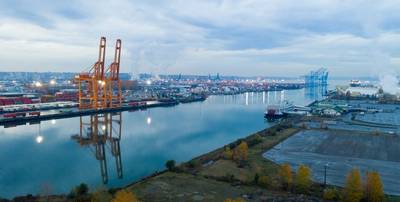US Ports Seek COVID-19 Relief
America’s port authorities are advocating for relief to manage the “extremely negative impacts” on the seaport industry brought on by the coronavirus pandemic as U.S. policymakers begin negotiations on the next COVID-19 aid package.
Among the port leaders’ advocacy efforts are letters sent Friday to U.S. House, Senate and Administration leaders, urging them to provide $1.5 billion for seaports to cover business-critical expenses that ports have incurred due to COVID-19. The letters state that while America’s seaports are crucial for ensuring the nation is able to quickly recover from its current economic crisis, ports have been neglected in previous coronavirus aid legislation.
Based on a 2018 port economic impacts study, the COVID-19 pandemic could result in a direct loss of 130,000 jobs at U.S. seaports on the U.S. East Coast and West Coast, along the entire Gulf Coast region, and the U.S Territories of Guam and U.S. Virgin Islands.
“Due to the COVID-19 crisis, America’s seaports are experiencing significant financial challenges as commercial cargo has plummeted and passenger travel has nearly ceased,” said American Association of Port Authorities (AAPA) President and CEO Christopher J. Connor. “At the same time, their expenses for things such as personal protection equipment for their workers, sanitation protocols often requiring extensive worker overtime, safety and disinfection supplies, and even security, have greatly reduced ports’ ability to invest in necessary infrastructure maintenance and upgrades, and make their debt and bond obligation payments.”
Connor noted that, as a result of the pandemic, furloughs and layoffs have begun in the maritime industry and across the supply chain. Relief grant funds, he said, “will help American ports to manage the impact this pandemic is having on their ability to function efficiently and for maintaining a state of readiness.”
“The relief we’re seeking isn’t about replacing lost carrier, cargo and cruise passenger revenue,” Connor said. “It’s about ensuring that ports are able to keep pace with the accelerating costs of protecting their workers while keeping their workforce employed, ensuring bond and other debt instrument payments aren’t missed, and ultimately about maintaining a state of readiness to significantly aid in the nation’s eventual economic recovery.”
Capt. John Murray, CEO of Port Canaveral, who was among the 69 port leaders representing a broad coalition of U.S. ports, state port authorities and port associations to sign the letters, said, “Port Canaveral is one of many seaports in Florida and around the country experiencing significant financial challenges as cruise passenger travel has ceased and commercial cargo volumes have not scaled up fast enough to offset the lost operations,”
“Ports are struggling to manage the impact this pandemic is having on our ability to continue our critical mission as gateways of commerce,” Capt. Murray said. “Seaports, like airports, need emergency relief to maintain our state of readiness and to ensure we can sustain our role in the nation’s economic recovery.”
















